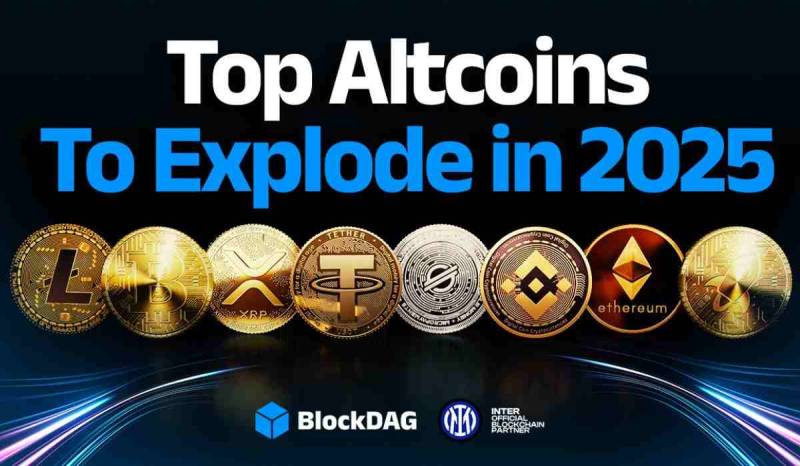 |
|
 |
|
 |
|
 |
|
 |
|
 |
|
 |
|
 |
|
 |
|
 |
|
 |
|
 |
|
 |
|
 |
|
 |
|
訴訟は高等裁判所に進出しなかったため、Analisa Torres判事の元の地方裁判所の判決(XRP販売が機関投資家と取引所の投資家との差別化が有名になった)は、拘束力のある先例を確立していません。
After a four-year legal battle, the U.S. Securities and Exchange Commission (SEC) has dropped its lawsuit against Ripple. The case began in December 2019 when the SEC sued Ripple for allegedly carrying out an unregistered, $1.3 billion token offering. Throughout the case, the SEC struggled to define crypto tokens and apply existing securities laws to the rapidly evolving technology.
4年間の法的戦いの後、米国証券取引委員会(SEC)は、Rippleに対する訴訟を取り下げました。この訴訟は、2019年12月に、SECが未登録の13億ドルのトークンの提供を実施したとされるためにリップルを訴えたときに始まりました。ケース全体を通して、SECは暗号トークンを定義し、既存の証券法を急速に進化する技術に適用するのに苦労しました。
Despite this, the case will not be advancing to a higher court, leaving Judge Analisa Torres’s original district court decision as the final ruling. This means that her decision will not be setting a binding precedent for other cases.
それにもかかわらず、この事件は高等裁判所に進出することはなく、アナリサ・トーレス裁判官の元の地方裁判所の判決を最終判決として残します。これは、彼女の決定が他のケースの拘束力のある先例を設定しないことを意味します。
While the case has now come to an end, it has left industry insiders feeling that the case could have gone further. Cases at the district court level usually get appealed to a circuit court of appeals, setting a legal precedent for that specific circuit.
この事件は今や終わっているが、業界のインサイダーは、このケースがさらに進んだ可能性があると感じている。地方裁判所レベルでの訴訟は通常、巡回控訴裁判所に上訴され、その特定の巡回区の法的先例を設定します。
However, as part of the settlement, both parties agreed to drop their appeals, meaning that Judge Torres’s original decision will not be setting a binding precedent for any specific circuit.
しかし、和解の一環として、両当事者は控訴を取り下げることに同意しました。つまり、トーレス裁判官の当初の決定は、特定の巡回区の拘束力のある先例を設定しないことを意味します。
“The challenge is that settlements are often confidential. So we may not get that clarity industry members seek,” says Charly Ho, legal counsel at Rikka.
「課題は、和解がしばしば機密であることです。したがって、その明確な業界のメンバーに求めることはないかもしれません」とリッカの弁護士であるチャーリー・ホーは言います。
The case began when the SEC sued Ripple for allegedly selling XRP tokens to institutional investors without registering the offerings, a violation of Section 5 of the Securities Act of 1933. Judge Torres ruled in part of the case that these sales were indeed institutional offerings and that they should have been registered. However, she ruled that sales of XRP on exchanges were not institutional offerings and did not need to be registered.
この訴訟は、SECが1933年の証券法のセクション5の違反である登録せずにXRPトークンを機関投資家に販売したとされるためにリップルを訴えたときに始まりました。しかし、彼女は、取引所でのXRPの販売は制度的な提供ではなく、登録する必要はないと判断しました。
This part of the ruling was a win for Ripple, as the SEC had argued that all sales of XRP should have been registered, no matter who the investor was. Judge Torres also ruled that the SEC failed to sufficiently notify the public about the types of tokens that would be considered securities.
SECは、投資家が誰であろうと、XRPのすべての販売が登録されるべきだったと主張していたため、判決のこの部分はRippleの勝利でした。トーレス裁判官はまた、SECが証券と見なされるトークンの種類について十分に一般に通知できなかったと裁定した。
Despite this ruling, the case could have continued. Both parties planned to appeal parts of the decision to the First Circuit Court of Appeals. The SEC planned to appeal Judge Torres’s ruling that it did not provide sufficient notice to the public about the types of tokens that would be considered securities.
この判決にもかかわらず、事件は継続できたかもしれません。両当事者は、決定の一部を第一巡回控訴裁判所に上訴することを計画していました。 SECは、証券と見なされるトークンの種類について十分な通知を一般に提供していないというトーレス裁判官の判決を上訴することを計画しました。
Meanwhile, Ripple planned to appeal Judge Torres’s ruling that three sales of XRP to institutional investors should have been registered with the SEC. However, after months of legal battles, the SEC announced that it was dropping its case against Ripple.
一方、Rippleは、XRPの3つの販売が機関投資家にSECに登録されるべきだったとトーレス裁判官の判決を上訴する予定でした。しかし、数ヶ月の合法的な戦いの後、SECは、リップルに対する訴訟を削除していると発表しました。
As part of the settlement agreement, both parties agreed to drop their planned appeals. The SEC also agreed to pay a portion of Ripple’s legal fees.
和解契約の一環として、両当事者は計画された控訴を取り下げることに同意しました。 SECはまた、Rippleの法的費用の一部を支払うことに同意しました。
“It’s a partial win for the SEC, a partial win for Ripple; and then the SEC was going to appeal the decision that was not favorable for it, and then Ripple was going to appeal the decision for the portion of the decision that was not favorable for Ripple. But because the SEC has now dropped the complaint and the claims against Ripple, part of the settlement discussions was Ripple agreeing to drop its appeal as well,” says Ho.
「それはSECの部分的な勝利であり、リップルの部分的な勝利です。そして、SECはそれに対して好ましい決定に上訴することになり、RippleはRippleに有利な決定の部分について決定を上訴するつもりでした。
The case has implications for other crypto firms in the U.S., as it could have set a precedent for how token offerings should be structured and what legal weight Judge Torres’s decision really carries.
この事件は、トークンの提供をどのように構成するべきか、そしてトーレス裁判官の決定が実際にどのような法律であるかについての先例を設定できた可能性があるため、米国の他の暗号企業に影響を及ぼします。
“It’s a missed opportunity insofar as legal development is concerned,” says Joshua Chu, co-chair of Hong Kong Web3 Association.
「法的開発に関する限り、これは機会を逃したものです」と、香港Web3協会の共同議長であるジョシュアチューは言います。
The case also comes at a time when the SEC seems to be pivoting away from the enforcement-heavy tactics that characterized the early stages of U.S. crypto regulation. In recent months, the regulator has begun to engage more closely with industry stakeholders in a bid to set clear rules of the road for the nascent sector.
また、このケースは、SECが米国の暗号規制の初期段階を特徴付ける執行が多い戦術から遠ざかっているように見えるときにもたらされます。ここ数ヶ月、規制当局は、新生セクターの道路の明確な規則を設定するために、業界の利害関係者とより緊密に関与し始めました。
This shift in strategy has been met with mixed reactions from crypto firms, some of which are still reeling from the SEC’s aggressive lawsuits.
この戦略の変化は、暗号企業からの混合反応で満たされており、その一部はまだSECの積極的な訴訟から動揺しています。
Earlier this year, the SEC sued major crypto exchange Coinbase and smaller exchange Gemini for allegedly operating as unregistered exchanges and failing to register their token offerings. Both cases are still ongoing.
今年の初め、SECは、非登録された取引所として運営され、トークンの提供を登録しなかったとされるために、主要な暗号交換コインベースと小規模の交換ジェミニを訴えました。どちらのケースもまだ進行中です。
The case also has implications for the broader legal landscape, which is rapidly evolving with the introduction of new regulatory frameworks in the EU and Hong Kong. The EU’s Markets in Crypto Assets (MiCA) regulation is set to standardize the rules for crypto firms operating in the region, while Hong Kong is positioning itself as a global hub for Web3 companies.
このケースは、EUと香港に新しい規制枠組みの導入とともに急速に進化している、より広範な法的景観にも影響を及ぼします。 Crypto Assets(MICA)規制におけるEUの市場は、この地域で事業を展開する暗号企業のルールを標準化するように設定されていますが、香港はWeb3企業のグローバルハブとしての地位を確立しています。
Together, these developments suggest that the final chapter in the SEC’s case against Ripple may also mark the beginning of a new era for crypto law, one that is defined by cooperation and collaboration rather than litigation and uncertainty.
一緒に、これらの開発は、Rippleに対するSECの事例の最終章が、訴訟や不確実性ではなく協力と協力によって定義される暗号法の新しい時代の始まりをマークする可能性があることを示唆しています。
To discuss the implications of the case further, Magazine met with legal experts from across the globe: Charly Ho of Rikka in the U.S., Yuriy Brisov of Digital & Analogue Partners in Europe, and co-chair of Hong Kong Web3 Association Joshua Chu. Together, they unpack what Ripple’s “win” really means for crypto law, and whether the industry is any closer to
事件の影響についてさらに議論するために、雑誌は世界中の法律専門家と会いました:米国のリッカのチャーリー・ホー、ヨーロッパのデジタル&アナログパートナーのYuriy Brisov、および香港Web3協会のジョシュアチュの共同議長。一緒に、彼らはRippleの「勝利」が暗号法に対して本当に意味するものと、業界が何に近いかを解き放つ
免責事項:info@kdj.com
提供される情報は取引に関するアドバイスではありません。 kdj.com は、この記事で提供される情報に基づいて行われた投資に対して一切の責任を負いません。暗号通貨は変動性が高いため、十分な調査を行った上で慎重に投資することを強くお勧めします。
このウェブサイトで使用されているコンテンツが著作権を侵害していると思われる場合は、直ちに当社 (info@kdj.com) までご連絡ください。速やかに削除させていただきます。

















![Super Mario World Koopa Troopa 100%96⭐️ + Coin [Ao Vivo] Super Mario World Koopa Troopa 100%96⭐️ + Coin [Ao Vivo]](/uploads/2025/04/10/cryptocurrencies-news/videos/super-mario-koopa-troopa-coin-ao-vivo/image-1.webp)









































![ビットコイン[BTC]は、トランプの「それほど深刻ではない」関税計画の後、88,000ドルを突破しました ビットコイン[BTC]は、トランプの「それほど深刻ではない」関税計画の後、88,000ドルを突破しました](/uploads/2025/03/26/cryptocurrencies-news/articles/bitcoin-btc-topped-k-trump-severe-tariff-plans/img-1_800_480.jpg)
